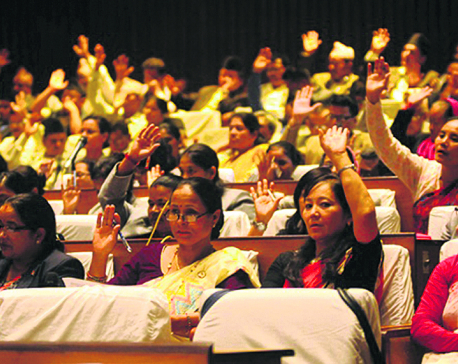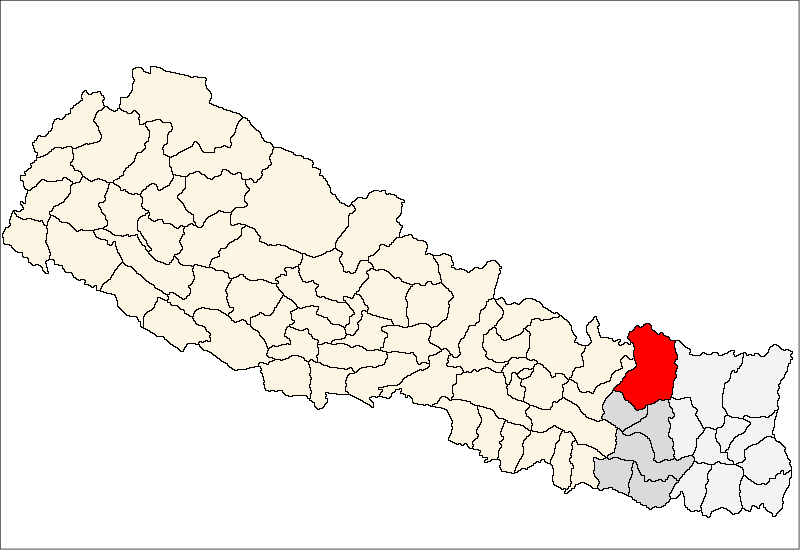
OR


Simone Galimberti
Simone Galimberti is the Co-Founder of ENGAGE, an NGO partnering with youths to promote social inclusion in Nepal.simone_engage@yahoo.com
Enabled by youth, local forums can help generate a new sense of civic engagement focused on achieving the Agenda 2030.
The search for a better, fairer society in an emerging nation like Nepal is a continuous and laborious journey with some advancements and several regressions, a process that frustrates all those actively engaged into a process of true nation building. The new constitution represented the start of a new era whose foundations are still being built and modern and progressive Nepal is still very much a work in progress.
It’s hard to find the appropriate benchmarks to look upon but the future of this country will rely on strong work ethics, ingenuity and creativity of all its people.There is no doubt that on all these dimensions, the country has proved to excel and if you need a validation, just look at the youth of the nation, those who could have been now in Australia but chose to remain.
Just over the lockdown, a number of them put themselves together and in face of adversity, doom and idleness, came up with some new business ideas.Perhaps many of such ventures will fail to sustain themselves on the long run but nevertheless their spirit of initiative, the audacity to dare to do something and determination to move on rather than staying still, are the biggest indicators that the future of the country cannot be but rosy and promising.
Yet there is one element that must be taken care of in order to create the conditions for such entrepreneurial society to grow, a society able to include everyone regardless of their backgrounds, personal histories, sexual orientations and type of disabilities. That is an increased level of people’s participation in the public life.
In particular, I am referring to the domain of public policies rather than the narrower political arena that is still dominated by party politics. It is about finding ways to involve and engage citizens in a deliberate process of decision making, going well beyond the boundaries erected in Nepal like elsewhere in the free world, by the liberal democratic model.
Public policies is something broader and more encompassing which should be at the center of a national renewal of the process of civic engagement.Civic engagement to me is to find ways to generate interest among the people on what’s going on right now both at national and local levels.
Traditional forms of public deliberations could be harnessed provided certain safeguards are in place, ensuring a fair gender representation and no discrimination happen.
Given the existing patterns and dynamics of power relations, it won’t be easy to create such ideal conditions on the ground and we should not harbor any illusion unless we are committed and open-minded and we let youth facilitate the process.
Even without binding powers, such localized forums of citizens that used to be the norm in the past could offer citizens a venue to express their opinions and also provide suggestions. For such experiments to happen, it is going to be essential to reach a common understanding about the bipartisan spirit that should enable the discussions.
It is not that full time politicians or party cadres would not be allowed to be involved but if they did they would attend just as “observers” and on the conditions of setting aside their preconceptions and their falsely presumed right to prevail over others.
Moreover, in order to address existing and powerful gender imbalances, women should be in charge of leading and moderating the process on rotation basis.
Imagine an elder woman with a younger peer in charge for, say, a month with the following month led by another pair of women representing different generations.As you can see I am referring to a permanent system that can be established everywhere and people like to run such deliberative forums.
Indeed, consultations to be effective in terms of debate and discussions should not be just occasional or a one-off episode but rather long-lasting platforms that will exercise their functions just based on the free will of its participants. The Agenda 2030 with its Sustainable Development Goals could offer the best “apolitical” platform to talk about local problems.
The impact of climate change at local levels should be, after all, a bipartisan issue that can generate interest and engagement among people regardless of their political leaning. In Ireland, a country smaller than Nepal and for many years also a nation of migrants, the government has established a Citizens’ Assembly composed by 99 citizens randomly selected, none of them politicians, under the leadership of a chairperson appointed by the government, an independent public figure of the highest levels of integrity.
Building on a previous experience of 2016-2018, the Assembly meets periodically to discuss issues of national interests.Remarkably, in the ongoing exercise, gender equality is the overarching topic being debated on which members are mandated to focus on.
The resolutions and entire deliberative process, based on well stated principles namely “openness, fairness, equality of voice, efficiency, respect and collegiality”will feed into list of recommendations to the Parliament.
In another example, the London Borough of Newham published this year a groundbreaking report on democracy and public participation, full of recommendations on how to enhance civic engagement, including one related to a“permanent or standing Citizens’ Assembly, selected by “sortition” (choosing participants at random to represent the whole population)”.
For Nepal, I would suggest this should be a bottom-up approach led by youth groups and youth citizens all committed to set aside ideology and work only based on pragmatism and spirit of collaboration.
We could have localized versions of such citizens’ forum all with equal weight because living in the capital(s) should not carry more weight than living in a small village.This, for me, would represent an act of social and civil innovation with thematic discussions along the lines of the SDGs, trying to find novel solutions to existing problems.
Civic engagement is about many things and they are all related to putting the public interest first.Youth could show the way here. No matter which political leaders are in power, such grassroots public policies making can help the government at central, provincial and local level to pursue truly transformative agendas, the ones that put the interests of all citizens above all else.
The author is Co-Founder of ENGAGE, an NGO partnering with youths to promote social inclusion in Nepal
simone_engage@yahoo.com
You May Like This

Tap youth potentials for domestic development
In the past 10 months of the current fiscal year (FY 2022/23), Nepal has witnessed a concerning trend: over 660,000... Read More...

Investing in youth
Big employment generating programs must be carefully evaluated while small innovative pilots should be supported. ... Read More...

Musings on democracy
The fact that I, a foreigner, can write this article and it is published is an example of how democratic... Read More...




Just In
- NEA Provincial Office initiates contract termination process with six companies
- Nepal's ready-made garment exports soar to over 9 billion rupees
- Vote count update: UML candidate continues to maintain lead in Bajhang
- Govt to provide up to Rs 500,000 for building houses affected by natural calamities
- China announces implementation of free visa for Nepali citizens
- NEPSE gains 14.33 points, while daily turnover inclines to Rs 2.68 billion
- Tourists suffer after flight disruption due to adverse weather in Solukhumbu district
- Vote count update: NC maintains lead in Ilam-2













Leave A Comment